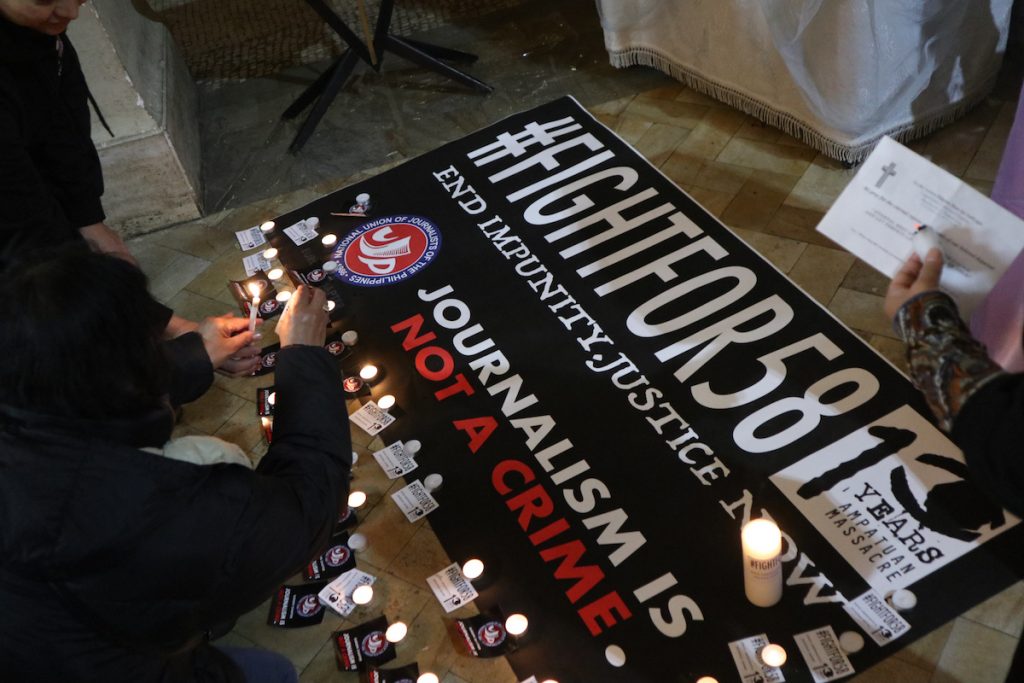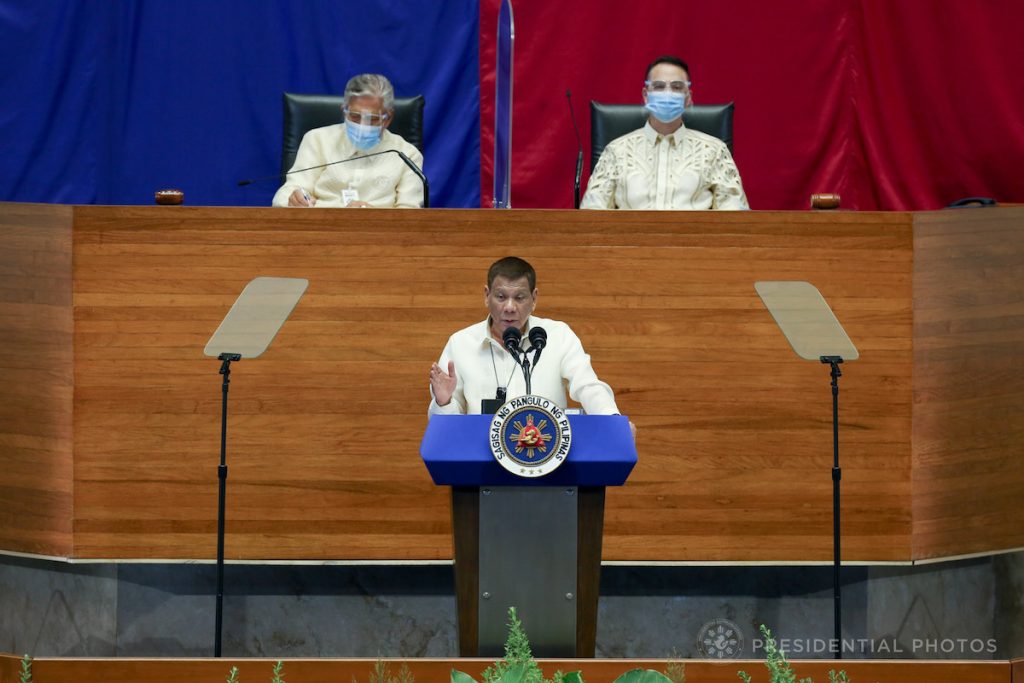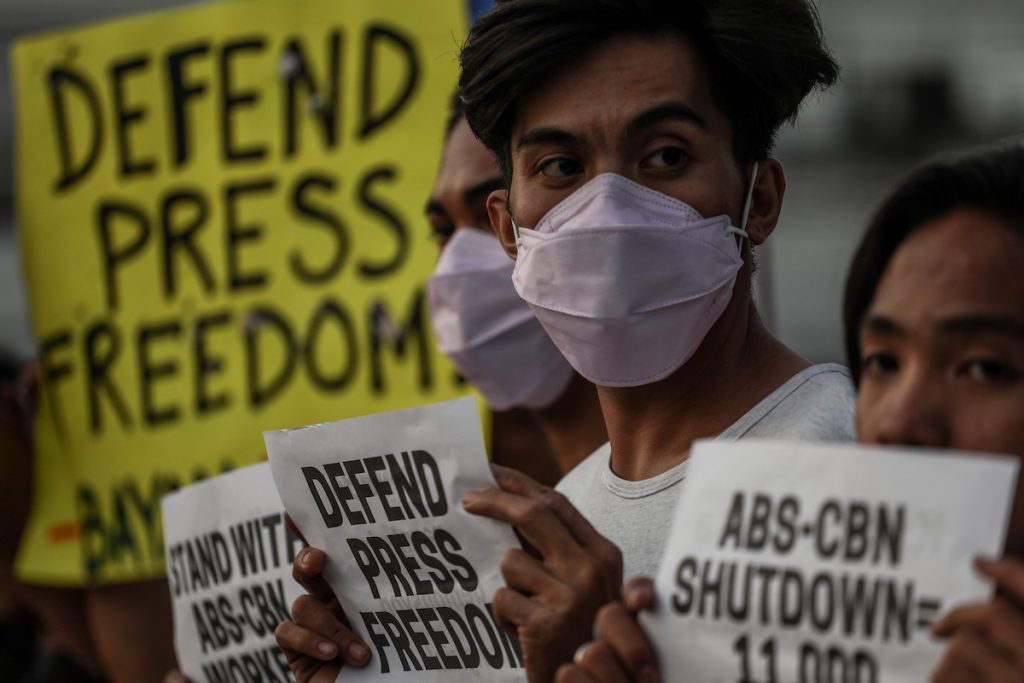If you are a truthful, honest journalist in the Philippines who writes and speaks the truth about injustice, political intrigues and wrongdoings, you could be killed any day and any time by motorcycle-riding assassins.
On Sept. 14, Jobert Bercasio was riding home on his motorcycle when assailants ambushed him and shot him five times, a hundred meters from the police station. He died on the spot.
Jobert was a reporter and commentator at the privately-run internet broadcaster Balangibog, in Sorsogon City, in the central Philippines. He commented and reported on local political, economic and social issues and one hour before his murder he had posted a report on his Facebook page about illegal quarrying.
On Nov. 2, the UN International Day to End Impunity for Crimes Against Journalists added one more slain journalist to its growing list. In the Philippines, impunity still reigns supreme as few suspects are caught and held accountable for numerous murders of journalists and human rights and land rights advocates. The suspects have been promised impunity.
Between the years 1991 and 2020, at least 85 journalists have been killed in the Philippines, according to the Committee to Protect Journalists (CPJ). Impunity is common, few police or military are ever held accountable.
It is almost impossible to identify the masterminds and the suspected godfathers behind the death squads. The dead journalists were mostly reporting on corruption, election-cheating and human rights violations. Some were killed in combat zones, according to the CPJ.
The Philippines also suffered the world’s largest mass murder of journalists. The 2009 Maguindanao massacre of 32 journalists and 23 civilians took 10 years of court battle to be resolved. They were ambushed, rounded up and machine-gunned to death and buried in a mass grave. The Ampatuan clan was found responsible and after ten years, the leaders that were still alive in 2019 were sentenced to life in prison. This was a rare occurrence.

The survival of journalists and their families nowadays means writers and reporters have to be very circumspect in their reporting. While being truthful in their reports, they must not offend, harshly criticize, satirize offensively and never insult or accuse anybody in power. Death squads for hire are available and they will kill anybody for a few hundred dollars.
The team of two assassins gets a text with the name and photo of a person to be killed and they agree to be paid by courier. The mastermind is never known. They pull on extra-large face masks against coronavirus, wear dark sunglasses and baseball caps. They jump on their stolen motorcycle and riding-in-tandem, they go looking for their victim. They corner their prey and the assassin on the back shoots the person dead in broad daylight and they speed away. Very few are ever caught, some of the shooters are suspected to be former or present off-duty policemen or military.
The greatest caution is exercised by journalists since the grim warning given by President Rodrigo Duterte in 2016: “Just because you’re a journalist, you are not exempted from assassination, if you’re a son of a bitch. Freedom of expression cannot help you if you have done something wrong.”

A chilling warning indeed. What wrong a journalist would do to deserve being assassinated has never been explained. The most dangerous thing a journalist could do is to write or broadcast insulting or provocative comments. Even mild criticism of a powerful politician or business tycoon could call out the death squad and your days are numbered.
The freedom of speech to publish and satirize provocatively like the cartoonist in France would be impossible here if you were to live another day. The retaliation would be swift, immediate and fatal. Tolerance and restraint by journalists is best to avoid assassinations and bystanders getting killed.
The freedom of speech is not absolute.
Strict libel laws in the Philippines make it almost impossible to criticize anyone. The latest anti-terrorist law makes the spreading of “fake news” a serious crime. However, there are other ways for journalists to write, speak and publish the truth by research and stating the facts in a non-sensational, non-belligerent and accusatory way. They conduct challenging but polite interviews.
But even the facts, presented in a factual balanced and respectful way, causes reaction.
The truth hurts, they say, so authorities and tycoons warn journalists to keep a lid on it. Some do, many don’t. The well-known and awarded journalist Maria Ressa and the news website Rappler was heavily criticized by government officials and charges were brought against her and Rappler for displeasing the powers that be.
Even ABS-CBN, a leading TV network, had its franchise chopped by Congress for similar reasons and the politicians said it was justified. ABS-CBS has devised a work around with another broadcasting company, ZOE Broadcasting Network, and is back on air.

Human rights and earth advocates and defenders have been killed in large numbers. According to research, there were 116 killings of human rights activists on Negros Island from July 1, 2016, to Aug. 27, 2019. Most of the victims were farmers and leaders of farmers groups struggling to defend their land against land-grabbers and mining corporations. Last July 2020, 14 rights workers were assassinated in one week alone.
I share with you a poem in solidarity with all journalists that have suffered injustice and oppression.
The Truth Will Set You Free
“The truth will set you free,”
the great man said.
Who will tell it as it is, those who hide and cower?
Or the journalists brave and strong that risk the consequence of talking truth to power?
They bring upon themselves the anger and the story of the dead,
The jackboot on the door, the beating on the head,
The sudden death by assassins highly paid
by officials whose corruption is their evil stock and trade.
What journalist brave and true can endure the fear and pain,
of knowing that their life’s work could be useless and in vain?
We stand with all those, whose voices have been silenced, barred and blocked,
Innocent journalists, jailed and tortured and who suffer electric shock.
Let all who in safety and in true freedom live,
And have the power to tell the truth and can give
true testimony against evil and terrible wrong,
and with justice and the power of truth overcome the strong.
Irish Father Shay Cullen, SSC, established the Preda Foundation in Olongapo City in 1974 to promote human rights and the rights of children, especially victims of sex abuse.
The views expressed in this article are the opinions of the author and do not necessarily reflect the editorial stance of LiCAS.news.






